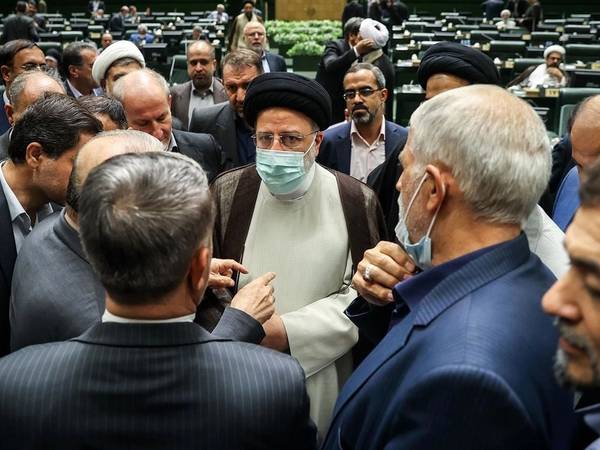A member of the Iranian parliament's National Security and Foreign Policy Committee says government’s promise to free frozen cash in South Korea has led to nowhere.
During the past year, Iranian officials including President Ebrahim Raisi said several times that the assets were to be released soon. However, this has repeatedly proved to be a tactic to defend a crumbling national currency.
Lawmaker Shahryar Haidari told the press Monday that "If Seoul does not pay back Iran's oil money, we might have to severe Iran's ties with South Korea." However, he did not say what can Iran gain by cutting off its ties with South Korea.
Two Seoul banks hold $7 billion from imports of Iranian oil that are frozen due to US financial sanctions on Tehran.
The frozen funds have been the subject of long negotiations between Tehran, Seoul and Washington over the past two years, as the Biden administration launched talks with Iran in April 2021 to revive the JCPOA. Many reports and statements point to possible release of the funds in exchange for several US citizens held hostage in Iran.
Both the nuclear and the prisoner release talks have not made meaningful progress. However, US officials say that efforts to secure the release of four Americans continue. Apparently, one US condition is to set up a mechanism for the disbursement of the funds for purchasing only non-sanctionable goods by Iran such as food and medicine.
Haidari claimed that "Korea had promised to repatriate Iran's money via Oman. We accepted that solution, but the Koreans refused to send the money with various pretexts."
Iran’s government submitted a bill to parliament July 29 to approve sending the case of the frozen funds to arbitration.
Khabar Online website in Tehran wrote that $7 billion of Iran's oil money has been frozen in South Korea for four years, but despite Korea's willingness to continue its ties and trade with Tehran, it has not been able to return the money because of US sanctions.
Oman had offered to mediate between Iran, South Korea and the United States, but this has not been fruitful yet, apparently because Tehran and Washington have not reached a deal on releasing four Americans held in Tehran.
Iran badly needs hard currency to solve at least part of its daunting economic problems, which have given rise to political instability, including protests and strikes across the country.
In another development, former lawmaker Iraj Nadimi told Nameh News website that the government is under pressure by the people who ask if they have really sold a lot of oil and if Iran's frozen assets have been released why they cannot see its impact on the economy.
Nadimi stated that it is a legitimate demand by the nation to improve their living standards. They should know where Iran’s money is if frozen assets in Iraq and South Korea have been released. The US in June allowed Iraq, which also hold frozen funds to release $2.7 billion, but only to be used for non-sanctionable payments, meaning essential needs.
The Iranian government made a lot of fuss during the past two weeks by claiming that part of Iran's assets in Iraq was released and is now in Oman.
Meanwhile, Faraz daily website also questioned the government's claim and sarcastically asked: "Haven't the frozen assets been released?" The website further stressed that the government's announcement about filing a complaint and referring the matter to arbitration reveals that it has been lying to the nation so far about those assets.
In another development, Alaeddin Borujerdi, the Chairman of the Sino-Iranian Friendship Association, denied that Iran has frozen assets in China too. He claimed the two countries' central banks coordinate payments.
